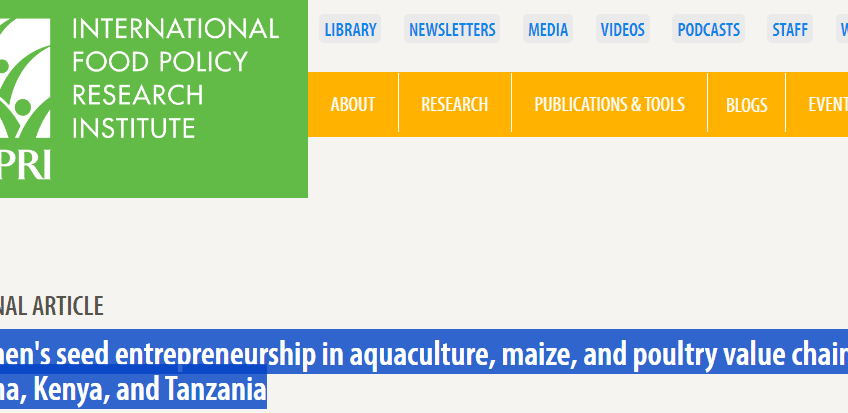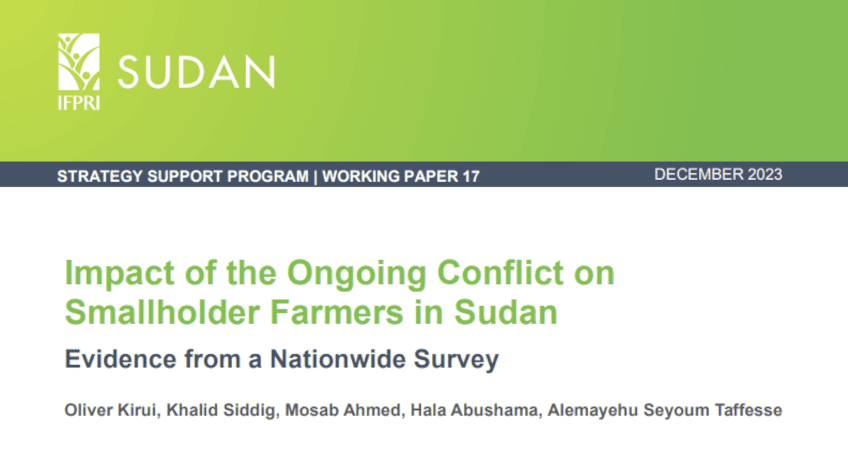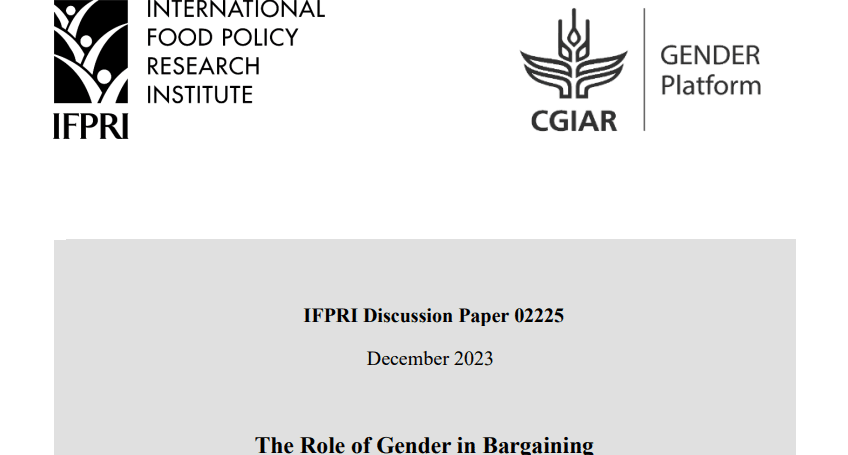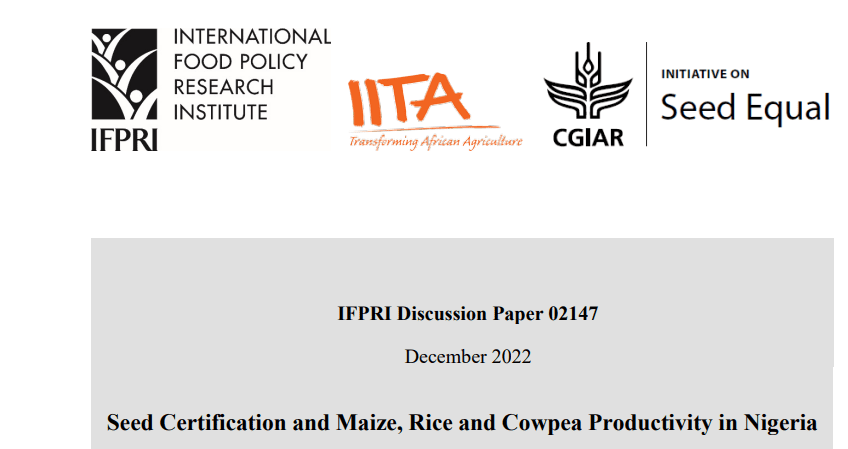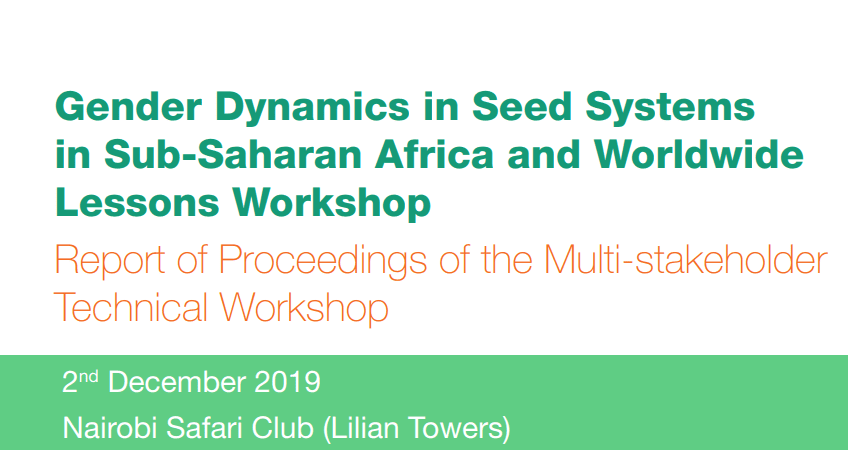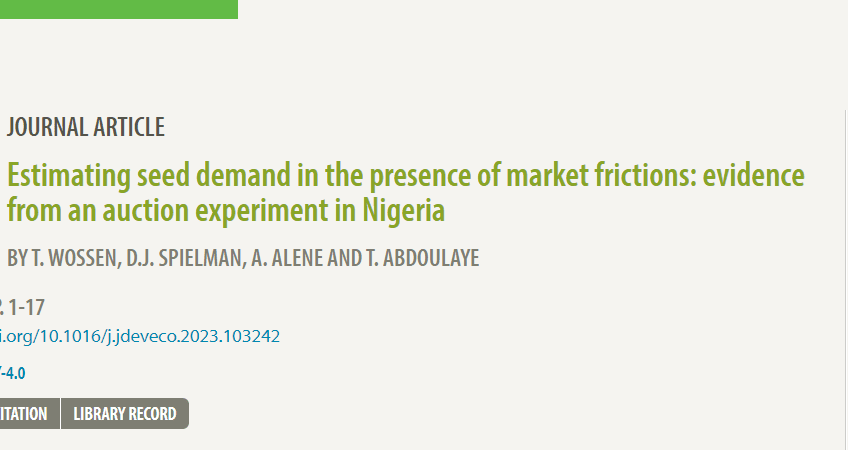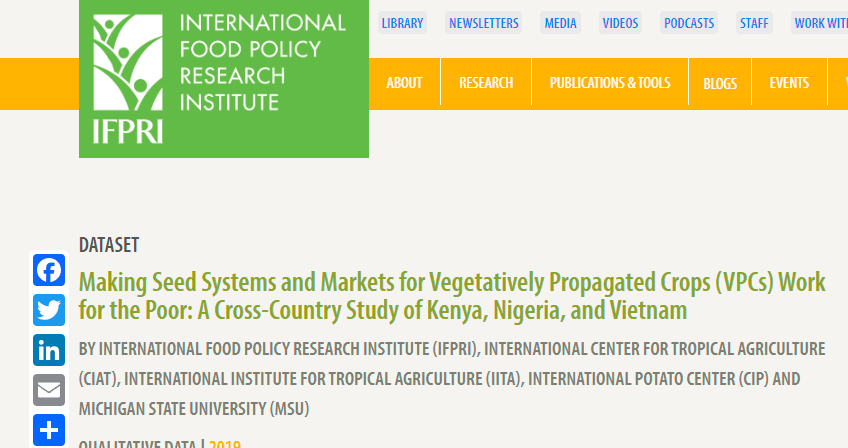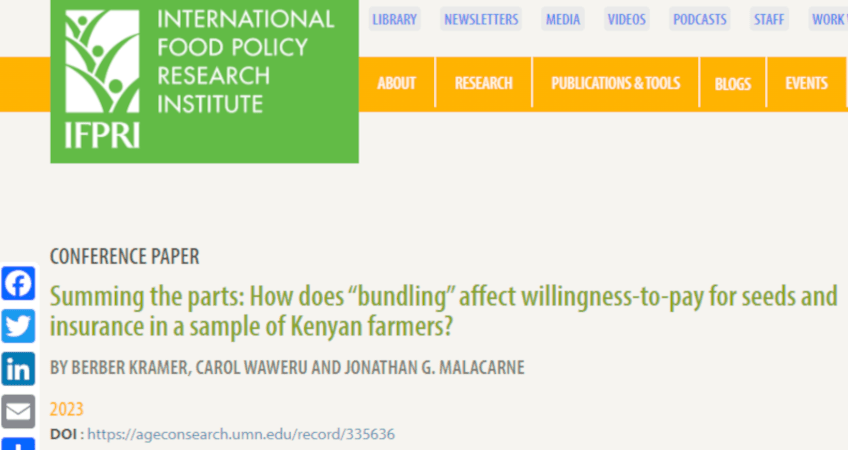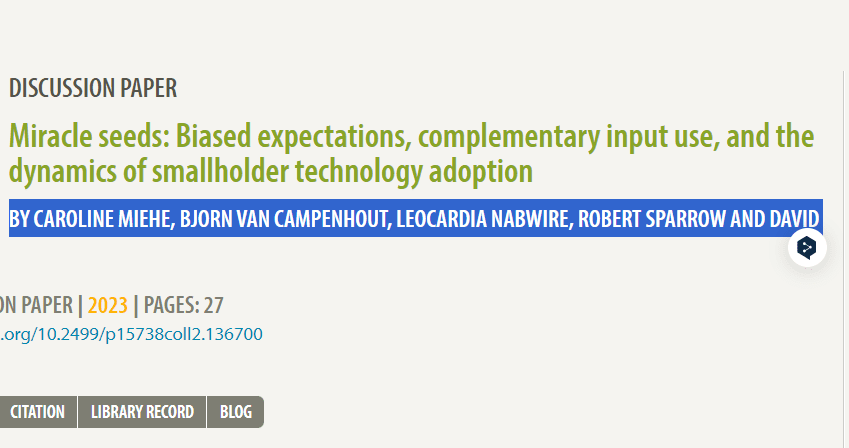
Week 125 – Discussion Paper: Miracle seeds: Biased expectations, complementary input use, and the dynamics of smallholder technology adoption
Authors: BY CAROLINE MIEHE, BJORN VAN CAMPENHOUT, LEOCARDIA NABWIRE, ROBERT SPARROW AND DAVID J. SPIELMAN
Keywords: maize, smallholders, Uganda, bias
“To fully benefit from new agricultural technologies like improved seed varieties, significant investment in complementary inputs such as fertilizers and pesticides, and practices such as systematic planting, irrigation, and weeding are also required. Farmers may fail to recognize the importance of these complements, leading to unsatisfactory crop yields and outputs and, eventually, dis-adoption of the variety. We provide a simple model of biased expectations, complementary input use and technology adoption and test its predictions using a field experiment among smallholder maize farmers in eastern Uganda. We find that pointing out the importance of complementary investments using a short, engaging video effectively deters some farmers from using commercial improved varieties. Consistent with the theoretical model, we find some evidence that this behavior change emanates from increased knowledge and expectations that are more in line with realized outcomes.” […]
Click on the following link to access the content: https://ebrary.ifpri.org/digital/collection/p15738coll2/id/136700
© CGIAR
